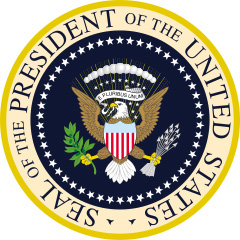Tom Roza on “The Presidential Election of 1864”
 South Bay Civil War Roundtable Secretary Tom Roza provides an intriguing and detailed examination of the critically important and impactful presidential election of 1864.
South Bay Civil War Roundtable Secretary Tom Roza provides an intriguing and detailed examination of the critically important and impactful presidential election of 1864.
Throughout its history as a democracy, the electing of a President has become one of the most important decisions Americans make as citizens. We not only select a political leader to guide our country through its legislative process, but also a person who is the Commander in Chief of our military and who in partnership with Congress, is responsible for the security of our nation.
Over the 230 years as a country, some presidential elections have become more significant than others. In his nearly 60 years of being a student of the American Civil War and the history of our country, Tom has concluded that the presidential election of 1864 has become the most critically important one. A civil war continued to rage and the destiny and future of our country was at stake as at no other time before or since.
Given that 2020 is a Presidential election year, this presentation on another very important election is particularly appropriate and timely.
Tom Roza has been a student of history for over 60 years. His interest in history in general and the Civil War in particular began with his elementary education in Milwaukee, Wisconsin and has evolved ever since. As an officer and the Secretary of the South Bay Civil War Roundtable, Tom has made numerous presentations on the topic of the Civil War to both his Roundtable organization and other historical organizations in the Bay Area. Tom is also a published author of the book entitled Windows to the Past: A Virginian’s Experience in the Civil War that has been accepted by the Library of Congress into its Catalog; Tom is currently working on a sequel entitled Lost Cause – Justice Found.

